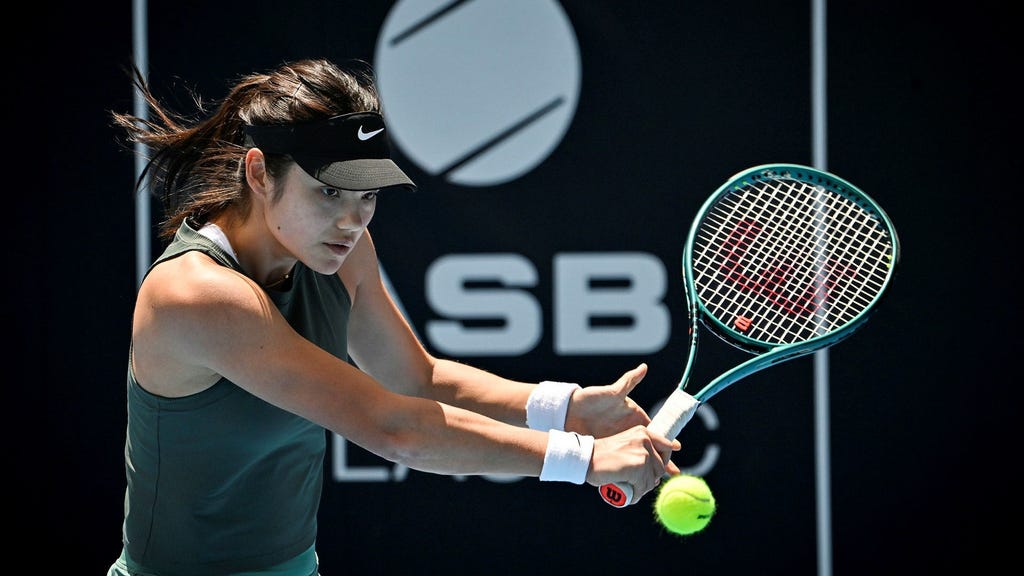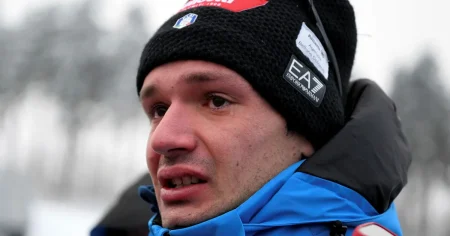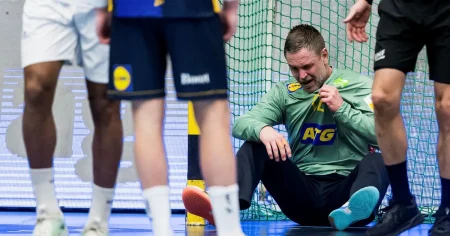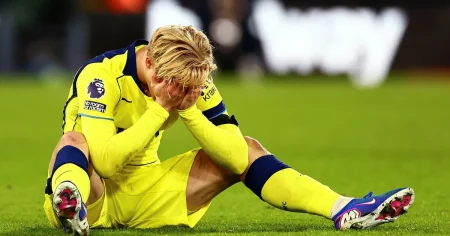Emma Raducanu, the 2021 US Open champion, is facing uncertainty as she prepares for the Australian Open due to a suspected allergic reaction affecting her hands and ankles. The young tennis star revealed at a press conference that her hands and ankles had become significantly red and swollen, leading her to believe she was experiencing an allergic reaction. However, she chose to forgo treatment to alleviate the symptoms, citing concerns about the recent doping scandals that have rocked the tennis world. The cases involving Jannik Sinner and Iga Swiatek, both of whom received Therapeutic Use Exemptions (TUEs) for medications, have heightened anxieties among players about the use of even common treatments. Raducanu expressed her apprehension, stating that all players are grappling with the situation and trying to manage it as best they can within their control. She decided to avoid any potential complications by foregoing treatment, preferring to endure the discomfort rather than risk being embroiled in a similar controversy.
The doping scandals involving Sinner and Swiatek have cast a long shadow over the tennis world, creating a climate of fear and uncertainty. Both players were granted TUEs, which allow athletes to use otherwise prohibited substances for legitimate medical reasons. However, these cases have sparked debate and raised questions about the transparency and fairness of the TUE system. While TUEs are designed to accommodate athletes with genuine medical needs, they can also be perceived as a loophole that allows for performance enhancement. The controversies surrounding Sinner and Swiatek have fueled this perception, making players like Raducanu hesitant to use even permitted medications or treatments for fear of being unfairly scrutinized or penalized.
Raducanu’s decision to avoid treatment highlights the difficult position athletes find themselves in. They must balance the need to manage their health and well-being with the ever-present risk of violating anti-doping regulations, even inadvertently. The current environment, marked by increased scrutiny and public suspicion, has made athletes hyper-vigilant about any substance they put into their bodies. This heightened awareness, while crucial for upholding the integrity of the sport, can also lead to athletes foregoing necessary medical interventions, potentially jeopardizing their health and performance. Raducanu’s choice reflects this delicate balancing act, prioritizing caution and compliance over immediate relief from her discomfort.
The increasing prevalence of doping scandals in tennis has eroded trust within the sport. Players are now wary of each other, and fans are left questioning the legitimacy of achievements. The need for transparency and stringent anti-doping measures has become more apparent than ever. While TUEs serve a critical purpose in allowing athletes with genuine medical conditions to compete, the system requires greater oversight to prevent abuse and maintain public confidence. The current climate of suspicion has created an atmosphere of distrust, where even routine medical treatments are viewed with suspicion. This puts athletes in a precarious position, forcing them to weigh the risks of treatment against the potential consequences of a positive doping test, even if unintentional.
The incidents involving Sinner and Swiatek, while distinct in their specifics, have collectively contributed to a broader sense of unease within the tennis community. Both cases highlighted the complexities and potential pitfalls of the TUE system, further complicating the landscape for athletes. Sinner’s case involved the use of a corticosteroid injection for a wrist injury, while Swiatek utilized a medication for allergies. While both substances are permitted with a TUE, the circumstances surrounding their use raised questions and fueled speculation. This has created an environment where athletes are increasingly hesitant to seek medical intervention, even for legitimate medical conditions, for fear of facing similar scrutiny and suspicion.
As Emma Raducanu prepares to compete in the Australian Open, her situation underscores the broader challenges facing the tennis world. The recent doping scandals have created a climate of fear and uncertainty, prompting athletes to make difficult choices regarding their health and their careers. The need for clearer regulations, greater transparency, and a renewed focus on athlete well-being has become paramount. The sport must strive to balance the imperative of maintaining a level playing field with the need to support athletes dealing with legitimate medical issues. Raducanu’s decision to forego treatment underscores the urgent need for a more robust and transparent system that protects both the integrity of the sport and the well-being of its athletes.














